Symposium: Artificial Intelligence (AI) and Human Participant Research: What’s Next?
October 26, 2023 | 12:00-6:00pm
Harvard Medical School, Waterhouse Room, Gordon Hall
Artificial intelligence (AI) and machine learning have become highly polarized subjects. An understanding of the potential impact on human participant research is rapidly evolving. This symposium, hosted by Harvard Catalyst’s Regulatory Foundations, Ethics, and Law program, will provide a brief background and history of AI and its current state within targeted areas of human participant research and institutional review board (IRB) operations. Speakers will discuss the current capabilities–and the complexities–of using AI in human participant research, how to facilitate the adoption of this technology more readily in human participant research, and the updated processes required of IRB/ human research protection programs (HRPPs) personnel when reviewing a study utilizing AI.
This symposium meets the criteria for Certified IRB Professional (CIP®) recertification credit. CIP credential holders may claim up to six hours of credit and should only claim credit for those sessions in which they participated. Persons seeking credit for participation should include the post-event email that will be sent with their CIP recertification applications as documentation of their participation.
Event Recordings
Watch a recording of the symposium (part one & two) below.
Event slides are currently going through internal accessibility remediation and will be available upon request. If you would like a copy of the slides please send a request to Regulatory@catalyst.harvard.edu.
Recent Publications & Updates
Andrew Hantel, MD, and his team published Perspectives of Oncologists on the Ethical Implications of Using Artificial Intelligence for Cancer Care in JAMA Network Open, as well as a perspective article, Digital Health to Patient-Facing Artificial Intelligence: Ethical Implications and Threats to Dignity for Patients With Cancer. Hantel was appointed to the American Society of Clinical Oncology’s (ASCO) AI Task Force, which is establishing AI guidance and education for oncologists and oncology researchers. He has also given several national talks on the ethics of AI in healthcare research, including informatics grand rounds at Memorial Sloan Kettering and grand rounds at Tufts Cancer Center. He additionally chaired a session on AI research at the ASCO Quality Care Symposium.
Julie Kaneshiro, MA, and the Office for Human Research Protections (OHRP) team participated in the Department of Health and Human Services (HHS) AI Task Force Working Groups, which play a role in HHS’s response to the October 30, 2023 Executive Order on the Safe, Secure, and Trustworthy Development and Use of Artificial Intelligence. Kaneshiro and her team also continue to offer learning opportunities on AI and human research including:
- AI and human research was the focus of OHRP’s 2024 Annual Exploratory Workshop held this September, which focused on the ethics, governance, and public trust issues related to human research involving AI. The event was livestreamed and a recording is freely available to the public.
- To engage the research community in conversations and learning on evolving issues that impact human research protections, OHRP co-sponsors Research Community Forums (RCFs), at which machine learning (ML), AI tools, and technologies with an AI component are regularly featured. This is the case for the virtual RCF OHRP co-hosted with the University of Pittsburgh, the University of Pennsylvania, and Penn State University held in September of 2024 and the in-person RCF in Augusta, Georgia, in February 2025.
- OHRP staff accept invitations to provide education to the regulated community on AI/ML in human research protections, including, at the University of New Mexico annual research conference, the Virginia IRB Consortium Conference, the Council on Governmental Relations member meeting, and the 2024 Military Health System Research Symposium.
Kenneth Kehl, MD, and his team published the results of their pilot implementation study, Clinical Inflection Point Detection on the Basis of EHR Data to Identify Clinical Trial-Ready Patients With Cancer in the American Society of Clinical Oncology Journal. The study evaluated rates of enrollment in a subset of early-phase clinical trials run by the early-phase Center for Cancer Therapeutic Innovation. Kehl’s team found that using AI to identify patients who had progressive diseases led to a small number of trial enrollments. However, there were a variety of reasons why patients did not enroll on a therapeutic trial, most often relating to other trial eligibility criteria. Therefore, improving trial participation rates may require rethinking and broadening eligibility criteria, whenever feasible.
Ken Mandl, MD, MPH, and his team continue to advance interoperable infrastructures to enhance the use of AI in healthcare. Their platforms process vast amounts of clinical data, facilitating both public health initiatives and research, including methods to extract detailed symptom information from large populations, as outlined in recent studies. Additionally, they are exploring the integration of LLM into clinical guidelines to further optimize care delivery. Read more about these efforts in Nature Medicine and JAMIA.
Megan Singleton, JD, MBE, CIP, and her team have been actively engaged in internal and external collaborative efforts to identify best practices in the approach to IRB/HRPP review and oversight of research involving AI.
- Cross-institutional collaborative efforts include:
- An AI Collaborative working group led by Emory University designed to develop guidance and resources for IRBs/HRPPs. This group’s preliminary work led to a presentation at the Collaborative Action Network segment of AAHRPP’s May 2024 conference and will be featured in at least one presentation at PRIM&R.
- The MRCT center’s AI working group designed to develop tools for IRBs/HRPPS to support review of research projects involving AI.
- Johns Hopkins University School of Medicine Internal efforts have included:
- A focus on research involving AI at the Johns Hopkins University School of IRBs June 2024 member retreat.
- Collaboration between the Johns Hopkins University School of Medicine Human Research Protection Program (HRPP) and Data Trust which has recently been designated with review responsibility for select projects involving AI. This work includes development of “triggers” for AI ancillary review and guidance for researchers and IRB members related to research involving AI.
- Active inclusion of additional AI experts in IRB meetings along with appointment of new IRB members with AI expertise .
Agenda
12:00pm
Welcome and Introductions
Barbara Bierer, MD, Brigham and Women’s Hospital
12:15pm
Ethical Aspects of AI in Human Participant Research
Andrew Hantel, MD, Dana-Farber Cancer Institute
12:35pm
A Federal Perspective of AI in Human Participant Research
Julie Kaneshiro, MA, Office of Human Research Protections (OHRP)
12:55pm
Questions and Discussion
1:10pm
Keynote: Background and History of AI
Ken Mandl, MD, MPH, Boston Children’s Hospital
1:30pm
Questions and Discussion
1:45pm
Case Study Panel Discussion
Moderator: Sarah Kiskaddon, JD, MA, Dana-Farber Cancer Institute
Kenneth Kehl, MD, Dana-Farber Cancer Institute
Jesse Ripton, MPH, CIP, Boston Children’s Hospital
Lara Sloboda, PhD, Dana-Farber Cancer Institute
Andrea Saltzman, RN, Broad Institute
Angela Lavoie, MBA, RN, CIP, CCRP, Beth Israel Deaconess Medical Center
2:45pm
Break
3:00pm
Introductions
Susan Kornetsky, MPH, Boston Children’s Hospital
3:05pm
Keynote: Use of AI in Human Participant Research Currently
Adam Landman, MD, MS, MIS, MHS, Mass General Brigham
3:25pm
Questions and Discussion
3:45pm
Introductions
Martha Jones, MA, CIP, Mass General Brigham
3:50pm
IRB Review of Research Involving AI
Benjamin Silverman, MD, Mass General Brigham
4:10pm
How Can AI Assist the IRB?
Megan Singleton, JD, MBE, CIP, John Hopkins University School of Medicine
4:30pm
Questions and Discussion
4:45pm
Case Study Panel Discussion
Moderator: Martha Jones, MA, CIP, Mass General Brigham
Irene Dimitriadis, MD, Mass General Brigham
Kim Serpico, EdD, CIP, Harvard T.H. Chan School of Public Health
Tonya Ferraro, MEd, CIP, Boston Children’s Hospital
Andrea Collins, MHA, CIP, Beth Israel Deaconess Medical Center
Alma Castro, MA, Harvard Business School
5:45pm
Closing Remarks
Aaron Kirby, MSc, Harvard Medical School
5:50pm
Reception
Speaker Bios
 Barbara Bierer, MD, is faculty lead of Regulatory Foundations, Ethics, and Law at Harvard Catalyst. She is faculty director of the Multi-Regional Clinical Trials Center of Brigham and Women’s Hospital and Harvard (MRCT Center), professor of medicine at Harvard Medical School and Brigham and Women’s Hospital (BWH), and a hematologist/oncologist. Additionally, she is director of regulatory policy for SMART IRB. Previously, she served as senior vice president of research at BWH, and was the institutional official for human and animal research, for biosafety, and for research integrity. She initiated the Brigham Research Institute and the Innovation Hub (iHub), a focus for entrepreneurship and innovation. In addition, she was the founding director of the Center for Faculty Development and Diversity at the BWH. She currently serves on the board of directors of Vivli, Inc., Management Sciences for Health, and the Edward P Evans Foundation. Bierer received her BS from Yale University and her MD from Harvard Medical School.
Barbara Bierer, MD, is faculty lead of Regulatory Foundations, Ethics, and Law at Harvard Catalyst. She is faculty director of the Multi-Regional Clinical Trials Center of Brigham and Women’s Hospital and Harvard (MRCT Center), professor of medicine at Harvard Medical School and Brigham and Women’s Hospital (BWH), and a hematologist/oncologist. Additionally, she is director of regulatory policy for SMART IRB. Previously, she served as senior vice president of research at BWH, and was the institutional official for human and animal research, for biosafety, and for research integrity. She initiated the Brigham Research Institute and the Innovation Hub (iHub), a focus for entrepreneurship and innovation. In addition, she was the founding director of the Center for Faculty Development and Diversity at the BWH. She currently serves on the board of directors of Vivli, Inc., Management Sciences for Health, and the Edward P Evans Foundation. Bierer received her BS from Yale University and her MD from Harvard Medical School.
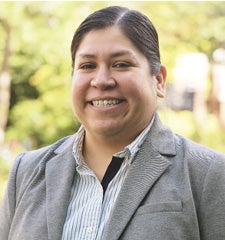 Alma Castro, MA, is assistant director of research administration and human subjects protections at Harvard Business School (HBS). She is responsible for providing education and training to the research community related to human subjects research and research compliance in general. Castro is co-chair of the Harvard Catalyst Social, Behavioral, and Educational Research Subcommittee, which is comprised of institutional review board (IRB) professionals across local university and hospital IRBs. Prior to joining HBS, Castro was a senior IRB review specialist in the Office of Research Administration and Research Compliance at the Harvard Chan School of Public Health. She earned a BA in sociology from Boston College, an MA in sociology from Texas State University San Marcos, and is a PhD candidate in sociology at the University of Massachusetts Amherst.
Alma Castro, MA, is assistant director of research administration and human subjects protections at Harvard Business School (HBS). She is responsible for providing education and training to the research community related to human subjects research and research compliance in general. Castro is co-chair of the Harvard Catalyst Social, Behavioral, and Educational Research Subcommittee, which is comprised of institutional review board (IRB) professionals across local university and hospital IRBs. Prior to joining HBS, Castro was a senior IRB review specialist in the Office of Research Administration and Research Compliance at the Harvard Chan School of Public Health. She earned a BA in sociology from Boston College, an MA in sociology from Texas State University San Marcos, and is a PhD candidate in sociology at the University of Massachusetts Amherst.
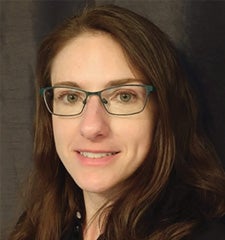 Andrea Collins, MHA, CIP, is director of institutional review board (IRB) operations at Beth Israel Deaconess Medical Center. She previously worked as the director of research at South Shore Hospital and as an IRB review specialist at Harvard T.H. Chan School of Public Health. Collins has been working in IRB operations and human subjects protection for nearly 17 years, first earning her certificate as an IRB professional in 2014. She earned her MS in health administration from Regis College and her BA in sociology and communications from Simmons College.
Andrea Collins, MHA, CIP, is director of institutional review board (IRB) operations at Beth Israel Deaconess Medical Center. She previously worked as the director of research at South Shore Hospital and as an IRB review specialist at Harvard T.H. Chan School of Public Health. Collins has been working in IRB operations and human subjects protection for nearly 17 years, first earning her certificate as an IRB professional in 2014. She earned her MS in health administration from Regis College and her BA in sociology and communications from Simmons College.
 Irene Dimitriadis, MD, is a fellowship-trained reproductive endocrinologist and infertility specialist at the Mass General Fertility Center. She is also an instructor of OB/GYN and reproductive biology at Harvard Medical School. Her clinical interests include caring for women with infertility, recurrent pregnancy loss, congenital uterine anomalies, polycystic ovarian syndrome, fibroids, uterine polyps, endometriosis and premature ovarian insufficiency, as well as women interested in fertility preservation, preimplantation genetic testing and third-party reproduction. She participates in the care of women requiring assisted reproductive technologies, including ovulation induction and IVF. Dimitriadis is also actively involved in research and is interested in understanding how environmental factors can affect the reproductive system. She was a part of the National Institute of Environmental Health Sciences funded EARTH study, collaborating with the Harvard T.H. Chan School of Public Health. A native of Greece, she received her medical degree from the University of Athens and completed her OB/GYN residency at Tufts Medical Center in Boston. She completed her clinical fellowship in reproductive endocrinology and infertility at Massachusetts General Hospital.
Irene Dimitriadis, MD, is a fellowship-trained reproductive endocrinologist and infertility specialist at the Mass General Fertility Center. She is also an instructor of OB/GYN and reproductive biology at Harvard Medical School. Her clinical interests include caring for women with infertility, recurrent pregnancy loss, congenital uterine anomalies, polycystic ovarian syndrome, fibroids, uterine polyps, endometriosis and premature ovarian insufficiency, as well as women interested in fertility preservation, preimplantation genetic testing and third-party reproduction. She participates in the care of women requiring assisted reproductive technologies, including ovulation induction and IVF. Dimitriadis is also actively involved in research and is interested in understanding how environmental factors can affect the reproductive system. She was a part of the National Institute of Environmental Health Sciences funded EARTH study, collaborating with the Harvard T.H. Chan School of Public Health. A native of Greece, she received her medical degree from the University of Athens and completed her OB/GYN residency at Tufts Medical Center in Boston. She completed her clinical fellowship in reproductive endocrinology and infertility at Massachusetts General Hospital.
 Tonya Ferraro, MEd, CIP, is the Senior IRB QI Consultant in the Education and Quality Improvement Program (EQuIP) at Boston Children’s Hospital. Her role includes educational outreach, study reviews/audits, and developing quality improvement initiatives. Additionally, she is a site visitor for the Association for Accreditation of Human Research Protection Programs (AAHRPP) and participates in the Harvard Catalyst subcommittees: Emerging Technologies, Ethics, and Research, and QA/QI. In addition to her work in research ethics, she serves as a Boston Korean Adoptees, Inc. board member where she developed a research education program centered on return of results for the adoptee community, demonstrating her commitment to making research education inclusive and accessible. Previously, she was a Senior IRB Administrator at Harvard University and a Project Manager and Programmer for the Health Behavior Research Center at the University of Vermont. Ferraro studied studio art at Northeastern University and received an interdisciplinary M.Ed from the University of Vermont with a focus on research methodologies. In 2022, she completed a bioethics fellowship at Harvard Medical School Center for Bioethics.
Tonya Ferraro, MEd, CIP, is the Senior IRB QI Consultant in the Education and Quality Improvement Program (EQuIP) at Boston Children’s Hospital. Her role includes educational outreach, study reviews/audits, and developing quality improvement initiatives. Additionally, she is a site visitor for the Association for Accreditation of Human Research Protection Programs (AAHRPP) and participates in the Harvard Catalyst subcommittees: Emerging Technologies, Ethics, and Research, and QA/QI. In addition to her work in research ethics, she serves as a Boston Korean Adoptees, Inc. board member where she developed a research education program centered on return of results for the adoptee community, demonstrating her commitment to making research education inclusive and accessible. Previously, she was a Senior IRB Administrator at Harvard University and a Project Manager and Programmer for the Health Behavior Research Center at the University of Vermont. Ferraro studied studio art at Northeastern University and received an interdisciplinary M.Ed from the University of Vermont with a focus on research methodologies. In 2022, she completed a bioethics fellowship at Harvard Medical School Center for Bioethics.
 Andrew Hantel, MD, is instructor in medicine at Harvard Medical School (HMS) and a faculty member in the Divisions of Leukemia and Population Sciences at Dana-Farber Cancer Institute and the HMS Center for Bioethics. Hantel’s lab leverages health services and care delivery methods to address ethical dilemmas in cancer discovery and delivery. His current work focuses on equity in the contexts of research participation, artificial intelligence, and climate change. His work is supported by the National Cancer Institute, American Society of Clinical Oncology, The Greenwall Foundation, and the Alliance for Clinical Trials in Oncology. He received his MD from Loyola University Chicago, studied medical ethics at the University of Chicago, and completed a postdoctoral fellowship in cancer population sciences at the Dana-Farber/Harvard Cancer Center.
Andrew Hantel, MD, is instructor in medicine at Harvard Medical School (HMS) and a faculty member in the Divisions of Leukemia and Population Sciences at Dana-Farber Cancer Institute and the HMS Center for Bioethics. Hantel’s lab leverages health services and care delivery methods to address ethical dilemmas in cancer discovery and delivery. His current work focuses on equity in the contexts of research participation, artificial intelligence, and climate change. His work is supported by the National Cancer Institute, American Society of Clinical Oncology, The Greenwall Foundation, and the Alliance for Clinical Trials in Oncology. He received his MD from Loyola University Chicago, studied medical ethics at the University of Chicago, and completed a postdoctoral fellowship in cancer population sciences at the Dana-Farber/Harvard Cancer Center.
 Martha Jones, MA, CIP, is vice president of human research affairs at Mass General Brigham. Her responsibilities include oversight of the institutional review boards (IRBs), embryonic stem cell research oversight, human research compliance and education, the human research protection program, and diversity, equity, and inclusion initiatives in research. Jones serves as chair of the Council on Accreditation of the Association for the Accreditation of Human Research Protection Programs (AAHRPP) and is an active site visitor and team leader. In 2017 she received the AAHRPP Distinguished Team Leader Award. She is a member of the board of directors for Public Responsibility in Medicine and Research (PRIM&R), where she serves as a member of the executive committee and as board treasurer. She co-leads the National Comprehensive Cancer Centers IRB directors group and is a member of the national SMART IRB Harmonization Steering Committee. She has experience in clinical research ethics, epidemiology, biostatistics, speech pathology, audiology, public health, and the coordination of multicenter research studies. She received her master’s degree from the University of Iowa.
Martha Jones, MA, CIP, is vice president of human research affairs at Mass General Brigham. Her responsibilities include oversight of the institutional review boards (IRBs), embryonic stem cell research oversight, human research compliance and education, the human research protection program, and diversity, equity, and inclusion initiatives in research. Jones serves as chair of the Council on Accreditation of the Association for the Accreditation of Human Research Protection Programs (AAHRPP) and is an active site visitor and team leader. In 2017 she received the AAHRPP Distinguished Team Leader Award. She is a member of the board of directors for Public Responsibility in Medicine and Research (PRIM&R), where she serves as a member of the executive committee and as board treasurer. She co-leads the National Comprehensive Cancer Centers IRB directors group and is a member of the national SMART IRB Harmonization Steering Committee. She has experience in clinical research ethics, epidemiology, biostatistics, speech pathology, audiology, public health, and the coordination of multicenter research studies. She received her master’s degree from the University of Iowa.
 Julie Kaneshiro, MA, is acting director of the Office for Human Research Protections (OHRP) and current deputy director. Previously, she was the policy team leader at OHRP. Her recent work has focused on the revisions to the common rule, ethical and regulatory issues related to standard of care research, deceased donor intervention research, and the ethics of mandatory research biopsies. Prior to joining OHRP she worked at the National Institutes of Health in the Office for Civil Rights and the Office of the Assistant Secretary for Planning and Evaluation, where she assisted in drafting the Health Insurance Portability and Accountability Act (HIPAA) Privacy Rule. Kaneshiro received her undergraduate degree in english literature from the University of Maryland and her graduate degree in public policy with concentrations in philosophy and social policy from George Washington University.
Julie Kaneshiro, MA, is acting director of the Office for Human Research Protections (OHRP) and current deputy director. Previously, she was the policy team leader at OHRP. Her recent work has focused on the revisions to the common rule, ethical and regulatory issues related to standard of care research, deceased donor intervention research, and the ethics of mandatory research biopsies. Prior to joining OHRP she worked at the National Institutes of Health in the Office for Civil Rights and the Office of the Assistant Secretary for Planning and Evaluation, where she assisted in drafting the Health Insurance Portability and Accountability Act (HIPAA) Privacy Rule. Kaneshiro received her undergraduate degree in english literature from the University of Maryland and her graduate degree in public policy with concentrations in philosophy and social policy from George Washington University.
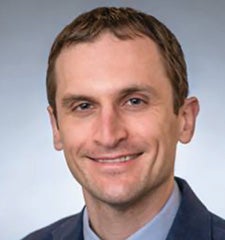 Kenneth Kehl, MD, is assistant professor of medicine at Harvard Medical School and a physician at Dana-Farber Cancer Institute (DFCI), where he conducts research in the Division of Population Sciences and provides clinical care for patients with lung cancer in the Thoracic Oncology Program. His primary interest is in improving outcomes for patients with cancer on a population basis by identifying ways to optimize the implementation of scientific and clinical innovation. His specific research focus is on applying modern analytic techniques and artificial intelligence to electronic health records data to improve care. Kehl received his MD from the Feinberg School of Medicine at Northwestern University, completed his residency in internal medicine at Brigham and Women’s Hospital, and received his fellowship training in hematology and medical oncology at the MD Anderson Cancer Center. Previously, he served as a faculty member in the Lowe Center for Thoracic Oncology and the Division of Population Sciences at DFCI.
Kenneth Kehl, MD, is assistant professor of medicine at Harvard Medical School and a physician at Dana-Farber Cancer Institute (DFCI), where he conducts research in the Division of Population Sciences and provides clinical care for patients with lung cancer in the Thoracic Oncology Program. His primary interest is in improving outcomes for patients with cancer on a population basis by identifying ways to optimize the implementation of scientific and clinical innovation. His specific research focus is on applying modern analytic techniques and artificial intelligence to electronic health records data to improve care. Kehl received his MD from the Feinberg School of Medicine at Northwestern University, completed his residency in internal medicine at Brigham and Women’s Hospital, and received his fellowship training in hematology and medical oncology at the MD Anderson Cancer Center. Previously, he served as a faculty member in the Lowe Center for Thoracic Oncology and the Division of Population Sciences at DFCI.

Aaron Kirby, MSc, is director of regulatory affairs operations for the Regulatory Foundations, Ethics, and Law program at Harvard Catalyst and the director of regulatory operations at SMART IRB, where he collaborates with leadership at academic medical centers, government agencies, and industry partners to advance multisite clinical and translational science initiatives. He provides business and research support for new and developing programs and has led regulatory knowledge initiatives focused on data safety and quality, protection of human subjects, and education outreach. He has contributed to several bioethical projects related to the responsibility of IRBs’ to ensure the inclusion of vulnerable populations in clinical research. Kirby holds an MSc in psychoanalytic developmental psychology from the University College London, a BA in communications and psychology from Duquesne University, and is a current fellow at Harvard Medical School’s Center for Bioethics.
 Sarah Kiskaddon, JD, MA, is senior director of the Office of Human Research Studies for the Dana Farber/Harvard Cancer Center (DF/HCC). Her academic and professional interests are in the fields of bioethics, and the legal and regulatory issues related to the conduct of clinical and social behavioral research. Kiskaddon has more than 25 years of experience in the field of human subject protections, including oversight of institutional review boards (IRBs), scientific review panels, and in conflict-of-interest management in research. In her current role at DF/HCC, she focuses on both efficiency of the review process and improving consistency of IRB decisions across multiple IRB panels. She is currently a guest lecturer at the Harvard T.H. Chan Harvard School of Public Health in regulatory and ethics training for clinical investigators. Kiskaddon obtained her law degree from the University of Pittsburgh and Yale Law School, and received her MA in medical anthropology. She was admitted to the Connecticut bar and worked in the health law practice before focusing her work on clinical research ethics.
Sarah Kiskaddon, JD, MA, is senior director of the Office of Human Research Studies for the Dana Farber/Harvard Cancer Center (DF/HCC). Her academic and professional interests are in the fields of bioethics, and the legal and regulatory issues related to the conduct of clinical and social behavioral research. Kiskaddon has more than 25 years of experience in the field of human subject protections, including oversight of institutional review boards (IRBs), scientific review panels, and in conflict-of-interest management in research. In her current role at DF/HCC, she focuses on both efficiency of the review process and improving consistency of IRB decisions across multiple IRB panels. She is currently a guest lecturer at the Harvard T.H. Chan Harvard School of Public Health in regulatory and ethics training for clinical investigators. Kiskaddon obtained her law degree from the University of Pittsburgh and Yale Law School, and received her MA in medical anthropology. She was admitted to the Connecticut bar and worked in the health law practice before focusing her work on clinical research ethics.
 Susan Kornetsky, MPH, is the senior director of clinical research compliance at Boston Children’s Hospital. She serves on the SMART IRB Steering Committee and has participated in their subcommittees. Additionally, she participates in the Bioethics Collaborative for the Multi-Regional Clinical Trials Center and serves as a member of the Boston Children’s Hospital Oversight Committee on Personalized Experimental Therapeutics. Previously, she was chair of Public Responsibility in Medicine and Research (PRIM&R) board of directors. She is a past member of the Secretary’s Advisory Committee on Human Research Protections (SACHRP) and served as a co-chair for subcommittee on children. She currently serves on the SACHRP Subpart A Subcommittee. She completed a medical ethics fellowship at Harvard Medical School and received her BA from Brandeis University and master’s in public health from Boston University.
Susan Kornetsky, MPH, is the senior director of clinical research compliance at Boston Children’s Hospital. She serves on the SMART IRB Steering Committee and has participated in their subcommittees. Additionally, she participates in the Bioethics Collaborative for the Multi-Regional Clinical Trials Center and serves as a member of the Boston Children’s Hospital Oversight Committee on Personalized Experimental Therapeutics. Previously, she was chair of Public Responsibility in Medicine and Research (PRIM&R) board of directors. She is a past member of the Secretary’s Advisory Committee on Human Research Protections (SACHRP) and served as a co-chair for subcommittee on children. She currently serves on the SACHRP Subpart A Subcommittee. She completed a medical ethics fellowship at Harvard Medical School and received her BA from Brandeis University and master’s in public health from Boston University.
 Adam Landman, MD, MS, MIS, MHS, is chief information officer and senior vice president of digital at Mass General Brigham, associate professor of emergency medicine at Harvard Medical School, and an attending emergency physician at Brigham and Women’s Hospital. He is an expert in health information technology and digital health design, development, and implementation. In his current role, he is responsible for technology solution delivery and support across all Mass General Brigham hospitals and practices. He works collaboratively to design and implement the future digital strategy such that front line needs for new digital capabilities are met and emerging technologies are considered while support is delivered highly effectively and efficiently. Landman received his medical degree from Rutgers-Robert Wood Johnson Medical School and trained in emergency medicine at the University of California Los Angeles (UCLA) Medical Center. He was a Robert Wood Johnson Foundation Clinical Scholar at Yale University, where he also received his MPH. He completed graduate degrees in information systems and health care policy and management at Carnegie Mellon University.
Adam Landman, MD, MS, MIS, MHS, is chief information officer and senior vice president of digital at Mass General Brigham, associate professor of emergency medicine at Harvard Medical School, and an attending emergency physician at Brigham and Women’s Hospital. He is an expert in health information technology and digital health design, development, and implementation. In his current role, he is responsible for technology solution delivery and support across all Mass General Brigham hospitals and practices. He works collaboratively to design and implement the future digital strategy such that front line needs for new digital capabilities are met and emerging technologies are considered while support is delivered highly effectively and efficiently. Landman received his medical degree from Rutgers-Robert Wood Johnson Medical School and trained in emergency medicine at the University of California Los Angeles (UCLA) Medical Center. He was a Robert Wood Johnson Foundation Clinical Scholar at Yale University, where he also received his MPH. He completed graduate degrees in information systems and health care policy and management at Carnegie Mellon University.
 Angela Lavoie, MBA, RN, CIP, CCRP, is the director of the Human Research Protection Program at Beth Israel Deaconess Medical Center (BIDMC), where she oversees the activities of BIDMC’s Committee on Clinical Investigations and the Human Subjects Protection Office. Prior to working in human subjects protection, she was a research nurse in the Clinical Research Center. Lavoie currently serves as the accountable nurse leader for clinical research nurses at BIDMC that are not part of a nursing unit. She received a BS in nursing from Worcester State University and an MBA from Bentley University.
Angela Lavoie, MBA, RN, CIP, CCRP, is the director of the Human Research Protection Program at Beth Israel Deaconess Medical Center (BIDMC), where she oversees the activities of BIDMC’s Committee on Clinical Investigations and the Human Subjects Protection Office. Prior to working in human subjects protection, she was a research nurse in the Clinical Research Center. Lavoie currently serves as the accountable nurse leader for clinical research nurses at BIDMC that are not part of a nursing unit. She received a BS in nursing from Worcester State University and an MBA from Bentley University.
 Ken Mandl, MD, MPH, directs the Computational Health Informatics Program at Boston Children’s Hospital and is the Donald A.B. Lindberg Professor of Pediatrics and Professor of Biomedical Informatics at Harvard Medical School. His work at the intersection of population and individual health has had a unique and sustained influence on the developing field of biomedical informatics. He was a pioneer of the first personally controlled health record systems, the first participatory surveillance system, and real-time biosurveillance. Mandl co-developed SMART, a widely adopted approach to enable a health app written once to access digital data and run anywhere in the healthcare system. He applies open-source inventions to lead electronic health record research networks and is a leader of the multisite Genomic Information Commons. Previously, Mandl was advisor to two directors of the Centers for Disease Control and Prevention and chaired the Board of Scientific Counselors of the National Institutes of Health’s National Library of Medicine. Mandl received his medical degree from Harvard Medical School and an MPH from the Harvard T.H Chan School of Public Health. He also attended Brown University, where he received his bachelor’s degree in biology and psychology.
Ken Mandl, MD, MPH, directs the Computational Health Informatics Program at Boston Children’s Hospital and is the Donald A.B. Lindberg Professor of Pediatrics and Professor of Biomedical Informatics at Harvard Medical School. His work at the intersection of population and individual health has had a unique and sustained influence on the developing field of biomedical informatics. He was a pioneer of the first personally controlled health record systems, the first participatory surveillance system, and real-time biosurveillance. Mandl co-developed SMART, a widely adopted approach to enable a health app written once to access digital data and run anywhere in the healthcare system. He applies open-source inventions to lead electronic health record research networks and is a leader of the multisite Genomic Information Commons. Previously, Mandl was advisor to two directors of the Centers for Disease Control and Prevention and chaired the Board of Scientific Counselors of the National Institutes of Health’s National Library of Medicine. Mandl received his medical degree from Harvard Medical School and an MPH from the Harvard T.H Chan School of Public Health. He also attended Brown University, where he received his bachelor’s degree in biology and psychology.
 Jessica Ripton, MPH, CIP, is the director of clinical research compliance at Boston Children’s Hospital. Previously, she has worked in the institutional review board offices at Mass General Brigham, Beth Israel Deaconess Medical Center, and Fenway Health, where she was responsible for the review, approval, and oversight of all human subject research, coordinating the research training curriculum in human subject protection, and directly supporting study teams with quality assurance monitoring. She received her BA from Bates College and MPH from Boston University.
Jessica Ripton, MPH, CIP, is the director of clinical research compliance at Boston Children’s Hospital. Previously, she has worked in the institutional review board offices at Mass General Brigham, Beth Israel Deaconess Medical Center, and Fenway Health, where she was responsible for the review, approval, and oversight of all human subject research, coordinating the research training curriculum in human subject protection, and directly supporting study teams with quality assurance monitoring. She received her BA from Bates College and MPH from Boston University.
 Andrea Saltzman, RN, currently serves as both co-director of the Research Compliance Office and director of the Office of Research Subject Protection for the Broad Institute of Harvard and MIT, a large genomic research and sequencing center. Previously, she served as associate director of the institutional review board at Harvard T.H. Chan School of Public Health, and associate director of medical affairs and chair of the Human Subject Protection Committee at Vertex Pharmaceuticals. She completed a fellowship at Harvard Medical School’s Division of Medical Ethics and worked as the research subject advocate for Massachusetts General Hospital’s Clinical Research Center. She attended Oberlin College and holds degrees in both english literature and nursing.
Andrea Saltzman, RN, currently serves as both co-director of the Research Compliance Office and director of the Office of Research Subject Protection for the Broad Institute of Harvard and MIT, a large genomic research and sequencing center. Previously, she served as associate director of the institutional review board at Harvard T.H. Chan School of Public Health, and associate director of medical affairs and chair of the Human Subject Protection Committee at Vertex Pharmaceuticals. She completed a fellowship at Harvard Medical School’s Division of Medical Ethics and worked as the research subject advocate for Massachusetts General Hospital’s Clinical Research Center. She attended Oberlin College and holds degrees in both english literature and nursing.
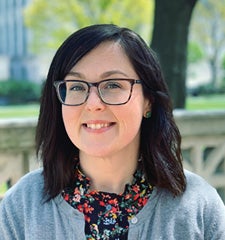 Kimberley Serpico, EdD, CIP, is a research ethicist, empiricist, educator, and an expert in the protection of the rights and welfare of participants involved in biomedical and social-behavioral research. She is associate director of institutional review board (IRB) operations for the Harvard Longwood Campus Schools, including Harvard T.H. Chan School of Public Health, Harvard Medical School, and Harvard School of Dental Medicine. Additionally, she is an adjunct faculty member at the Suffolk University Sawyer Business School’s Master of Healthcare Administration graduate program. She serves as co-chair of the Harvard Catalyst Emerging Technologies, Ethics, and Research Subcommittee where she co-leads a federally funded committee dedicated to enhancing data security and human subjects research involving novel technologies. She is also a member of the Consortium to Advance Effective Research Ethics Oversight (AEREO), which aims to advance effective research ethics oversight through empirical research. Serpico received her doctorate in education from Vanderbilt University and both her MEd in higher education administration and BS in psychology from Suffolk University. She is a certified IRB professional and completed her postdoc fellowship at the Harvard Medical School Center for Bioethics.
Kimberley Serpico, EdD, CIP, is a research ethicist, empiricist, educator, and an expert in the protection of the rights and welfare of participants involved in biomedical and social-behavioral research. She is associate director of institutional review board (IRB) operations for the Harvard Longwood Campus Schools, including Harvard T.H. Chan School of Public Health, Harvard Medical School, and Harvard School of Dental Medicine. Additionally, she is an adjunct faculty member at the Suffolk University Sawyer Business School’s Master of Healthcare Administration graduate program. She serves as co-chair of the Harvard Catalyst Emerging Technologies, Ethics, and Research Subcommittee where she co-leads a federally funded committee dedicated to enhancing data security and human subjects research involving novel technologies. She is also a member of the Consortium to Advance Effective Research Ethics Oversight (AEREO), which aims to advance effective research ethics oversight through empirical research. Serpico received her doctorate in education from Vanderbilt University and both her MEd in higher education administration and BS in psychology from Suffolk University. She is a certified IRB professional and completed her postdoc fellowship at the Harvard Medical School Center for Bioethics.
 Benjamin Silverman, MD, is the senior institutional review board (IRB) chair at Mass General Brigham. He is also chair of the Mass General Brigham Embryonic Stem Cell Research Oversight (ESCRO) Committee, director of ethics for the Institute for Technology in Psychiatry at McLean Hospital, and instructor in psychiatry and faculty member at the Center for Bioethics at Harvard Medical School. Previously, he served in the roles of IRB vice chair and IRB chair in the Mass General Brigham system. He received his medical degree from the Johns Hopkins University School of Medicine, completed his psychiatry residency at the Massachusetts General Hospital McLean Adult Psychiatry Residency Training Program, and completed sub-specialty fellowship training in addiction psychiatry through Mass General Brigham.
Benjamin Silverman, MD, is the senior institutional review board (IRB) chair at Mass General Brigham. He is also chair of the Mass General Brigham Embryonic Stem Cell Research Oversight (ESCRO) Committee, director of ethics for the Institute for Technology in Psychiatry at McLean Hospital, and instructor in psychiatry and faculty member at the Center for Bioethics at Harvard Medical School. Previously, he served in the roles of IRB vice chair and IRB chair in the Mass General Brigham system. He received his medical degree from the Johns Hopkins University School of Medicine, completed his psychiatry residency at the Massachusetts General Hospital McLean Adult Psychiatry Residency Training Program, and completed sub-specialty fellowship training in addiction psychiatry through Mass General Brigham.
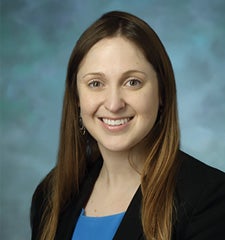 Megan Kasimatis Singleton, JD, MBE, CIP, is associate dean for human research protections and director of the Human Research Protections Program at Johns Hopkins University School of Medicine (JHM). In this role, she is responsible for oversight and direction of JHM’s eight institutional review boards (IRBs). Singleton serves as a member of the SMART IRB Harmonization Steering Committee, member of the Public Responsibility in Medicine and Research (PRIM&R) board of directors, and as PRIM&R’s board secretary. She is also an Association for Accreditation of Human Research Protection Programs (AAHRPP) site visitor, member of AAHRPP Council, and serves as a member of the Steering Committee for the Consortium to Advance Effective Research Ethics Oversight. Singleton currently teaches at the graduate level at the University of Pennsylvania and Johns Hopkins University, leading courses in research ethics and clinical trial management. She has developed research ethics curriculum and practical training in IRB administration tailored for national and international audiences. Singleton is a licensed attorney in Pennsylvania. She earned her law degree from Temple University and her masters in bioethics from the University of Pennsylvania.
Megan Kasimatis Singleton, JD, MBE, CIP, is associate dean for human research protections and director of the Human Research Protections Program at Johns Hopkins University School of Medicine (JHM). In this role, she is responsible for oversight and direction of JHM’s eight institutional review boards (IRBs). Singleton serves as a member of the SMART IRB Harmonization Steering Committee, member of the Public Responsibility in Medicine and Research (PRIM&R) board of directors, and as PRIM&R’s board secretary. She is also an Association for Accreditation of Human Research Protection Programs (AAHRPP) site visitor, member of AAHRPP Council, and serves as a member of the Steering Committee for the Consortium to Advance Effective Research Ethics Oversight. Singleton currently teaches at the graduate level at the University of Pennsylvania and Johns Hopkins University, leading courses in research ethics and clinical trial management. She has developed research ethics curriculum and practical training in IRB administration tailored for national and international audiences. Singleton is a licensed attorney in Pennsylvania. She earned her law degree from Temple University and her masters in bioethics from the University of Pennsylvania.
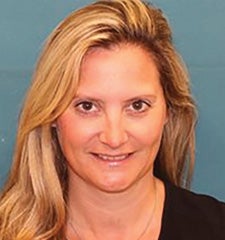 Lara Sloboda, PhD, is the director of the Human Research Participation Program at Dana Farber Cancer Institute (DFCI). She is also the co-chair of the Harvard Catalyst Regulatory Foundations, Ethics, and Law Program’s subcommittee on Social, Behavioral, and Education Research. Prior to joining DFCI, Sloboda was the operations manager for the Social, Behavioral, and Educational Research IRB at Tufts University. She holds a PhD in psychology from Tufts University.
Lara Sloboda, PhD, is the director of the Human Research Participation Program at Dana Farber Cancer Institute (DFCI). She is also the co-chair of the Harvard Catalyst Regulatory Foundations, Ethics, and Law Program’s subcommittee on Social, Behavioral, and Education Research. Prior to joining DFCI, Sloboda was the operations manager for the Social, Behavioral, and Educational Research IRB at Tufts University. She holds a PhD in psychology from Tufts University.
Planning Committee
The Harvard Catalyst Regulatory Foundations, Ethics, and Law program would like to thank all our speakers and panelists. We would also like to extend a special thank you to our planning committee members and their institutions for allowing them to be a part of this event.
- Barbara Bierer, Brigham and Women’s Hospital
- Youssef Hassan, Harvard Medical School
- Martha Jones, Mass General Brigham
- Aaron Kirby, Harvard Medical School
- Sarah Kiskaddon, Dana-Farber Cancer Institute
- Susan Kornetsky, Boston Children’s Hospital
- Angela Lavoie, Beth Israel Deaconess Medical Center
- Kim Serpico, Harvard T.H. Chan School of Public Health
- Evan Sohn, Harvard Medical School
- Marissa Stein, Harvard Medical School
- Joe Zurba, Harvard Medical School

